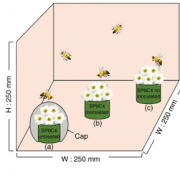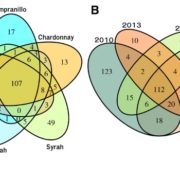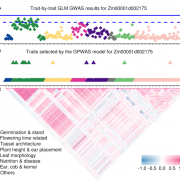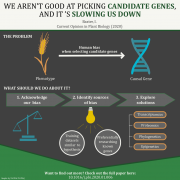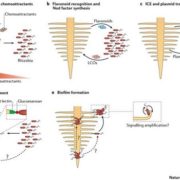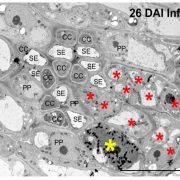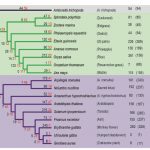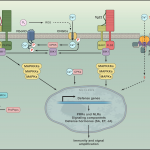Review. The plant microbiome: From ecology to reductionism and beyond (Annu. Rev. Microbiol.)
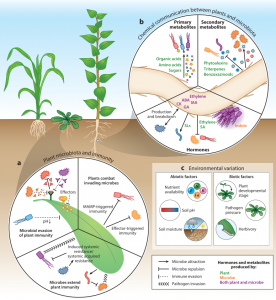 The last two decades have witnessed tremendous progress in our understanding of plant microbiota. Fitzpatrick, Salas-González et al. highlight recent discoveries from culture-dependent and culture-independent approaches and discuss the future path towards integrating these approaches. Culture-independent approaches are census studies of microbial communities in various ecological contexts. Such studies reveal four factors that affect variation in the diversity and composition of plant microbiomes: 1) selection by plants, 2) stochastic variation in growth and death of microbiota members (ecological drift), 3) constant flows of microbes between plants and surrounding environments (dispersal), and 4) evolution within microbial populations. Also, they reveal some bacterial genetic factors important for adaptation to local environments. Culture-dependent approaches include more controlled laboratory experiments that allow a reductionist way of studying mechanisms underlying plant-microbiota interactions. Recent studies have unraveled the roles of plant innate immunity, chemicals produced by plants and microbes, and environmental factors (e.g., biotic and abiotic stresses) in plant microbiome assembly. The authors conclude by providing some examples of how census and reductionist approaches can be integrated towards a unified understanding of the mechanisms and ecological importance of plant-microbiota interactions. (Summary by Tatsuya Nobori @nobolly) Annu. Rev. Microbiol. 10.1146/annurev-micro-022620-014327
The last two decades have witnessed tremendous progress in our understanding of plant microbiota. Fitzpatrick, Salas-González et al. highlight recent discoveries from culture-dependent and culture-independent approaches and discuss the future path towards integrating these approaches. Culture-independent approaches are census studies of microbial communities in various ecological contexts. Such studies reveal four factors that affect variation in the diversity and composition of plant microbiomes: 1) selection by plants, 2) stochastic variation in growth and death of microbiota members (ecological drift), 3) constant flows of microbes between plants and surrounding environments (dispersal), and 4) evolution within microbial populations. Also, they reveal some bacterial genetic factors important for adaptation to local environments. Culture-dependent approaches include more controlled laboratory experiments that allow a reductionist way of studying mechanisms underlying plant-microbiota interactions. Recent studies have unraveled the roles of plant innate immunity, chemicals produced by plants and microbes, and environmental factors (e.g., biotic and abiotic stresses) in plant microbiome assembly. The authors conclude by providing some examples of how census and reductionist approaches can be integrated towards a unified understanding of the mechanisms and ecological importance of plant-microbiota interactions. (Summary by Tatsuya Nobori @nobolly) Annu. Rev. Microbiol. 10.1146/annurev-micro-022620-014327


